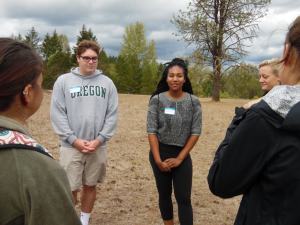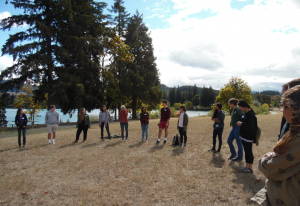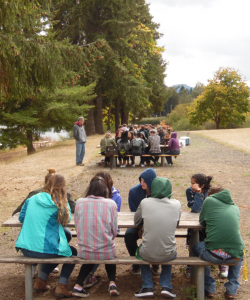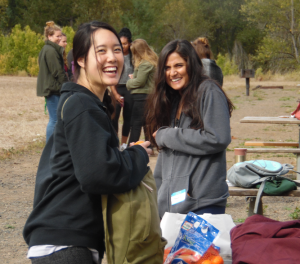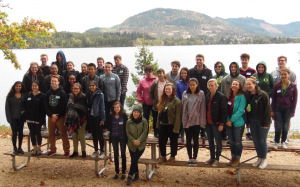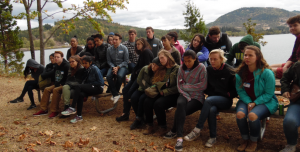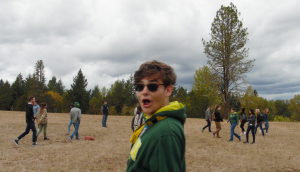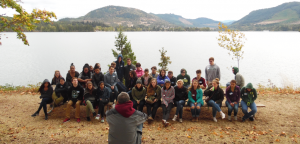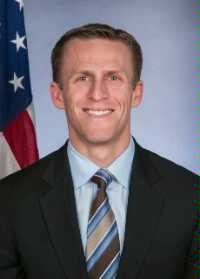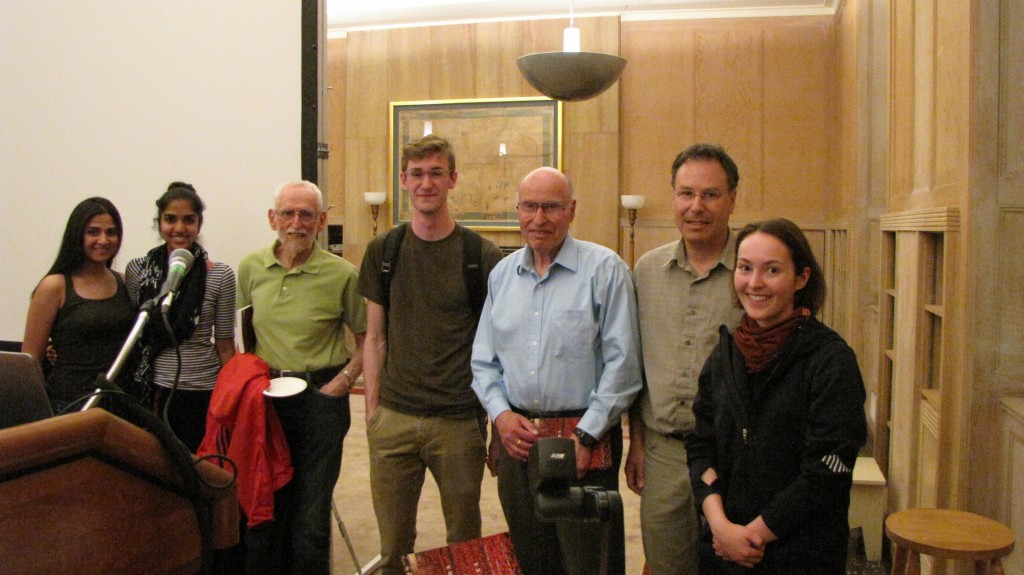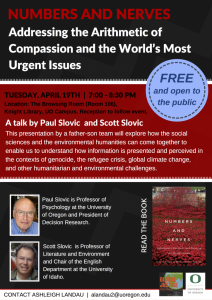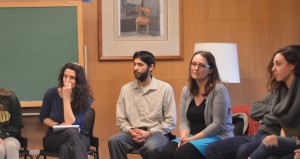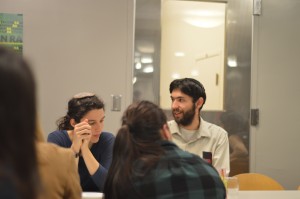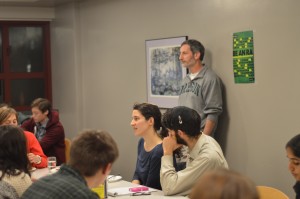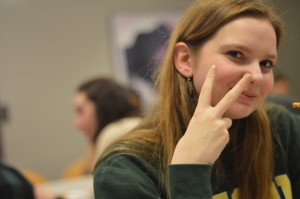As we prepare for this year’s PeaceJam, we have a reflection from Namratha Somayajula about last year’s guest, 1992 Nobel Peace Laureate Rigoberta Menchú Tum.
——————
“What I treasure most in life is being able to dream. During my most difficult moments and most complex situations I have been able to dream of a more beautiful future.”
Rigoberta Menchú Tum
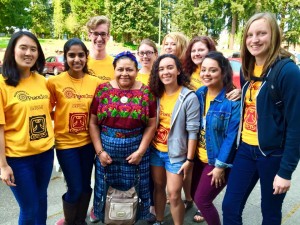
Several CGO members of PeaceJam pose with Nobel Laureate Tum
On April 17, 18, and 19th of 2015, several Carnegies had the exciting opportunity to act as mentors to middle and high school students participating in the annual PeaceJam conference, held for the first time that year at the University of Oregon. Speaking at the conference was 1992 Nobel Peace Prize Laureate Rigoberta Menchú Tum of Guatemala, whom the youth and mentors had the chance to learn from and meet.
PeaceJam is an international organization–with a branch in the Pacific Northwest and several others across the United States–that connects middle and high school youth with Nobel Peace activists and other inspiring community leaders. In the fall of that school year, Eva Kor, a strong advocate of forgiveness who survived the
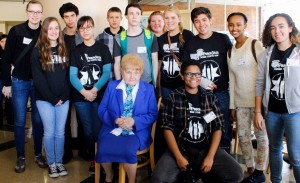
Kate and Alison, ’15s, and their PeaceJam group, with November keynote speaker Eva Kor
Holocaust as a child, came to the UO to speak at a smaller PeaceJam conference, for which many Carnegies had also acted as mentors. The goal of PeaceJam is to encourage youth to engage with social justice issues from a young age, and to learn from the stories of these activists to effect change in the future. College students help lead the youth in engaging with the issues brought up during the conference, and in the process learn from the speakers and youth alike.
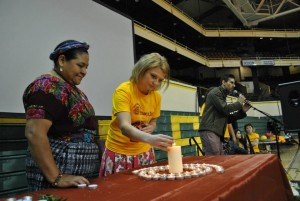
Kaela Thomas lighting a candle with Rigoberta Menchú Tum
The PeaceJam weekend in the spring was filled with unique events and experiences. On Friday, April 17th, Carnegies met Ms. Tum at the Many Nations Longhouse on campus. There, we shared lunch and learned from Ms. Tum about her thoughts regarding the role of youth in advocacy and justice, and the importance of community and identity. The years she has spent leading her community in Guatemala and advocating for indigenous rights throughout the Americas have given her experience in addressing and dealing with the variety of ethical issues that have confronted her. We were very fortunate to be able to listen to such an inspiring international leader, and we could keep in mind what we learned from her that first meeting during the upcoming weekend.
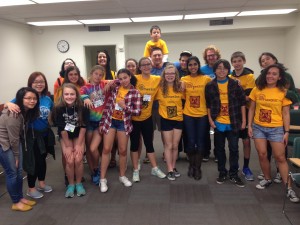
CGO mentors and UO UNICEF members with the students who participated in the workshop on privilege
In the areas surrounding MacArthur Court on Saturday and Sunday, the mentors led the youth in team-building activities, service projects, and conversations about leadership, social justice, and change. After hearing from Rigoberta Menchú Tum on Sunday morning, the youth signed up for workshops dealing with social justice issues in their communities.
Carnegies and UO UNICEF members teamed up to lead a workshop focusing on “privilege” with a group of about 20 middle and high school students. Beginning with an interactive role-playing activity, and ending with a TED Talk and discussion during which the students engaged well and shared their thoughts, the workshop was fun and allowed the PeaceJam participants and mentors alike to think critically about the issues of inequality and privilege.
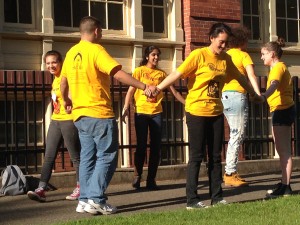
Claire and Namratha, and their PeaceJam group doing a team-building activity during the April conference
All in all, the Carnegie mentors enjoyed spending the PeaceJam weekend together, one that was filled with learning, energy, and music. Reflecting on her experience, Negina Pirzad, CGO ‘16 says, during that weekend “two of my favorite things came together, peace and working with kids, so participating in PeaceJam last year was satisfying for me to say the least. It was great how much responsibility we got as Mentors to the visiting students and how much exposure we all got to the Nobel Laureate, Rigoberta Menchú. I think my favorite part of the entire PeaceJam weekend, though, was the talent show at the end. Students had so much courage to share with everyone and their performances ranged from heartfelt, emotional pieces to funny and entertaining.”
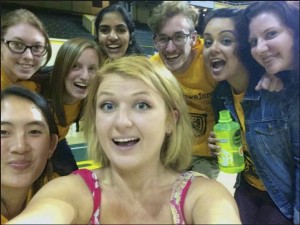
The end of a very lively weekend at PeaceJam!
We’re We’re looking forward to an equally positive experience for all as the PeaceJam conference approaches this year.

